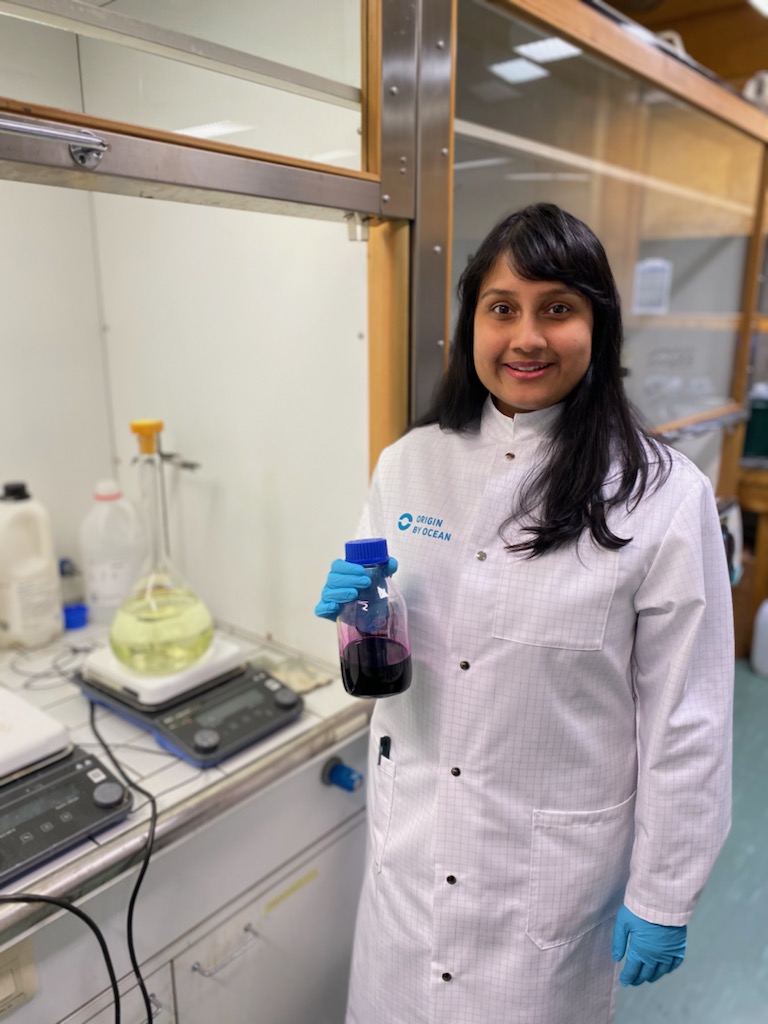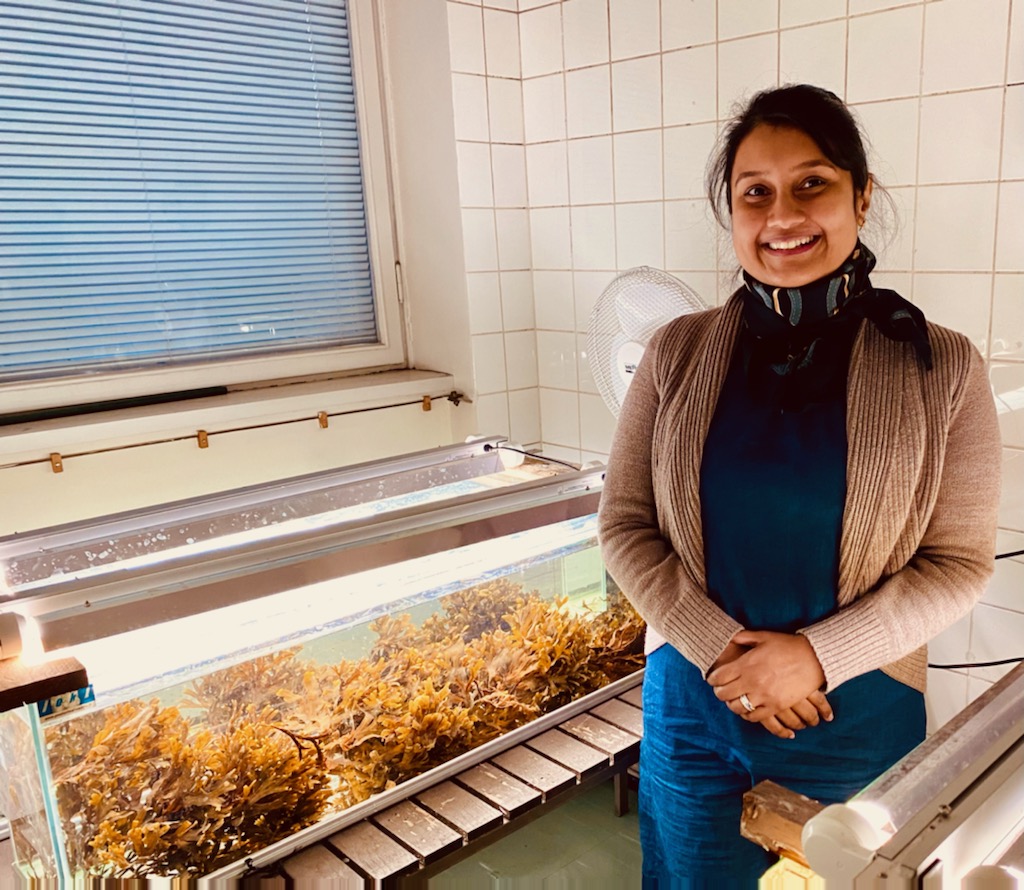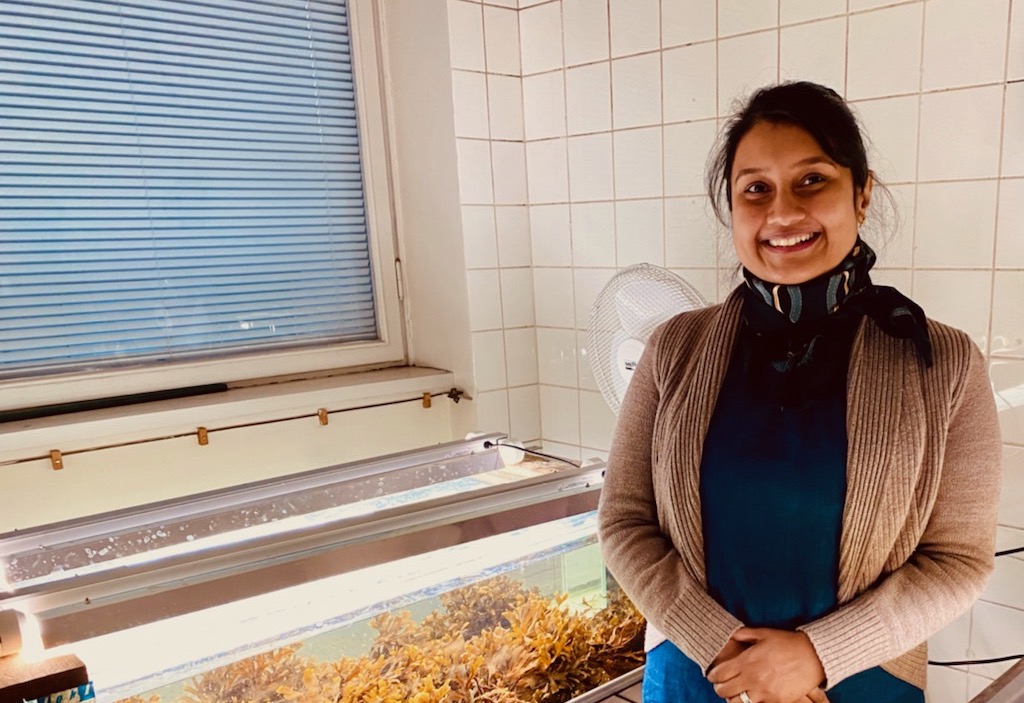The application period for the Postdocs in Companies (PoDoCo) programme is open from 1.3. to 14.5.2021. One of PoDoCo’s participants, Gayathri Murukesan, is living her dream as an industrial algal researcher at Origin by Ocean. Read more about the PoDoCo programme here.
Every summer, the Baltic seashore is dotted by blue-green algal blooms. Toxic blue-green algae are not only a great nuisance to swimmers and animals, but also the fishing industry. However, for molecular biologist Gayathri Murukesan, algae are her favourite thing to study.
Murukesan’s fascination with algae began when she was doing her master’s thesis and carried over to her PhD. She specialises in microalgae, particularly cyanobacteria. Cyanobacteria are also known as blue-green algae.

“Although some of the blue-green algae are bad for human and animal health, they are a natural source of raw materials that could help us get one step closer to sustainability”, says Murukesan.
In her PhD project, Murukesan studied how cyanobacteria could be used to produce biohydrogen. Biohydrogen is an ecological alternative to fossil-based fuels.
The PoDoCo programme has enabled Murukesan’s journey with algae to continue at Origin by Ocean.
Turning algae from the Baltic Sea into raw materials for cosmetics, snacks and cleaning products
Increasing amounts of algal blooms are a sign that our lakes and oceans are not in very good health. Blue-green algae are thriving due to excess nutrients from agriculture and industry flowing into oceans and lakes.
“This is a global issue. Algal blooms are a big problem, especially in California and China. However, we need to start from home and that means the Baltic Sea region”, says Murukesan.
Murukesan came across Origin by Ocean when she read an article written by the Finnish cleaning and hygiene product company Kiilto. Kiilto is one of the partners of Origin by Ocean, an Espoo-based company that seeks to create an algae-based business ecosystem that will alleviate the nutrient burden of the Baltic Sea.
Murukesan works as the company’s lead algal researcher. She is now studying algae blooms that were collected from the Baltic Sea during last autumn, and she is ready to test her findings on a larger scale when the next bloom season starts in April. The end goal is to improve the health of our lakes and oceans and to harvest cyanobacteria blooms that will be used as feedstock for the production of various products.
“Our raw materials could be used in the production of anything, from beer to adhesives. For example, several cyanobacteria naturally produce UV-blocking compounds that could be used in the cosmetics industry.”

PoDoCo is an excellent opportunity to move to the industry
Murukesan feels she still has a lot to learn about how the industry works and how products are developed. Being an industrial researcher trains you to be very goal-oriented and the results of your work can be applied fairly quickly. Murukesan finds it very rewarding and already knows that she wants to continue working in the industry after the PoDoCo programme.
She recommends the PoDoCo programme to all postdocs who are interested in seeing their work implemented in the real world. Having the opportunity to put her scientific knowledge into practice and protect the environment is also what motivated Murukesan to apply to the programme herself.
“Taking care of nature is what’s most important. Every company in Finland should keep that as a priority.”


